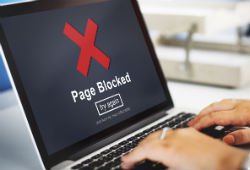Movie & TV Show ‘Piracy Protection’ Insurance Now Available
dimanche 4 novembre 2018 à 10:27 For almost two decades, peer-to-peer file-sharing networks have been a rich source of content for those who prefer not to pay the going rates for movies, TV shows, music, software, and video games.
For almost two decades, peer-to-peer file-sharing networks have been a rich source of content for those who prefer not to pay the going rates for movies, TV shows, music, software, and video games.
For almost as long, entertainment industry companies and groups have been trying to stem the tide. Litigation against P2P software companies was soon accompanied by lawsuits against end users, with the latter gaining in popularity in more recent times after it became clear that money is to be made from the practice.
Over the years, hundreds of so-called ‘copyright troll’ cases have been reported and countless thousands of individuals have chosen to pay a settlement fee, in order to make a supposed lawsuit disappear. For some companies, the practice has proven lucrative but others have found it less so, with more knowledgeable defendants fighting back, causing costs to rise and profits to plummet.
In the UK, several companies have attempted to generate revenue from alleged file-sharers. The business model doesn’t appear to have varied much since its inception around 2006, with most players seemingly backing away in the face of adverse publicity and informed defendants fighting their corners.
In 2015, a company called Hatton and Berkeley entered the arena. Working with well-known copyright troll partner MaverickEye and several movie producers, the company threatened a huge wave of lawsuits. After an initial flurry of developments over several months, things went quiet. However, there are signs the company is eyeing the space once more.
In a recent email to TorrentFreak, Hatton and Berkeley founder Robert Croucher pointed us to a somewhat tricky to digest article, but with an undoubtedly interesting core.
“A ‘mutual assured destruction’ scenario was previously an inevitable outcome to any civil litigation in the UK, bringing with it the real risk of creating a zero-sum game where both claimant and defendant would be equally penalized financially creating an economic ‘non-solution’,” the piece reads.
“To counter the potential risk to rights holders, we opted for an attritional loss model, a proxy battle of sorts, designed to consolidate intellectual property interests – focussing combined efforts and greatly reducing adverse risk exposure to get over of the zero-sum hurdle.”
In common with previous announcements from the company, straightforward language is eschewed in favor of an elaborate overview. However, the main take-home from the release is that there is a new facet to be considered in the mass litigation landscape – Internet piracy insurance.
Offered via UK-based insurance broker Integro and sourced from an unnamed “‘A’ rated, multinational insurer”, Piracy Protection cover claims to assist copyright holders to recover lost revenues by making mass litigation against file-sharers (read: BitTorrent users) a less risky exercise.
“This Insurance is the first of its kind to cover the Rights Holder in their pursuit of Copyright Infringers against three main elements of risk: ISP Adverse Costs; Defendants Costs; Own Court Fees on Loss,” Integro writes (pdf).
“Previously Rights Holders have pursued defendants through court, however until now, they have had to bear the significant risk of Adverse Costs which in many cases would be too high to consider.
“By purchasing this Insurance, 1) you transfer all this risk to the Insurer, 2) you transfer the administrative burden to the Wrapper, and 3) our panel of Specialist
Tier 1 Intellectual Property Lawyers will pursue the infringers through IPEC (Intellectual Property Enterprise Court – A division of the High Court) on your behalf,” the broker adds.
Croucher informs TF that the ‘Wrapper’ is a limited liability partnership (LLP), an entity incorporated to run a business with two or members. Those members can be people or even a company.
“Hatton & Berkeley is the architect and manager of the insurance wrapper,” he explains.
“The LLP is a standard insurance wrapper model, if you can imagine it is similar to managing a fund, principally – multiple capital accounts, structured reporting to members, and generally reduced overheads as the rights holders consolidate and coordinate their efforts under one banner.”
Or, as the UK government phrases it, “Each member pays tax on their share of the profits, as in an ‘ordinary’ business partnership, but isn’t personally liable for any debts the business can’t pay.” Instead, liability is limited to the capital members invest into the LLP.
We put it to Croucher that while there have been plenty of threats to take file-sharers to court, in reality it rarely happens in the UK. It appears that this new type of insurance could be aiming to change that.
“The scarcity of applications to the Courts (specifically in the UK) are born of the high cost and risk associated with issuing litigious proceedings. This is something that rights holders have been battling against for years, and the core of our involvement to date has been to fix this very problem,” Croucher notes.
One of the key business areas of Hatton and Berkeley appears to be the formation of companies and indeed, LLPs.
The idea of piracy insurance isn’t new. More than a decade ago, a Swedish company offered insurance to file-sharers for around $20 per year, in the event they were ever sued for copyright infringement. It wasn’t particularly popular, mainly because people didn’t think they were likely to be sued. Croucher seems to believe the new product can be more successful.
“This type of insurance (Before The Event / After The Event / Legal Expenses hybrid) shares lots of commonality with litigation funding, which is essentially what it is.
“Attritional loss models are quite common, this is however the first in the world market like this that targets torrent activity specifically and is leveraged to fund legal action at court, and of course covers any adverse risk of loss to the rights holder,” he concludes.
Whether this type of approach will prove attractive to rightsholders will remain to be seen, as will its effectiveness under pressure. On the other side, the best risk management strategy for current and future BitTorrent users is not to get monitored doing something illegal in the first place.
Source: TF, for the latest info on copyright, file-sharing, torrent sites and more. We also have VPN reviews, discounts, offers and coupons.
 Whether it’s for a school project, a funny meme, or a blog, many people use search engines to find fitting images.
Whether it’s for a school project, a funny meme, or a blog, many people use search engines to find fitting images. 

 Most Internet providers do their best to keep the peace with copyright holders. Swedish ISP
Most Internet providers do their best to keep the peace with copyright holders. Swedish ISP 
 As a staunch defender of an open Internet, ISP
As a staunch defender of an open Internet, ISP 
